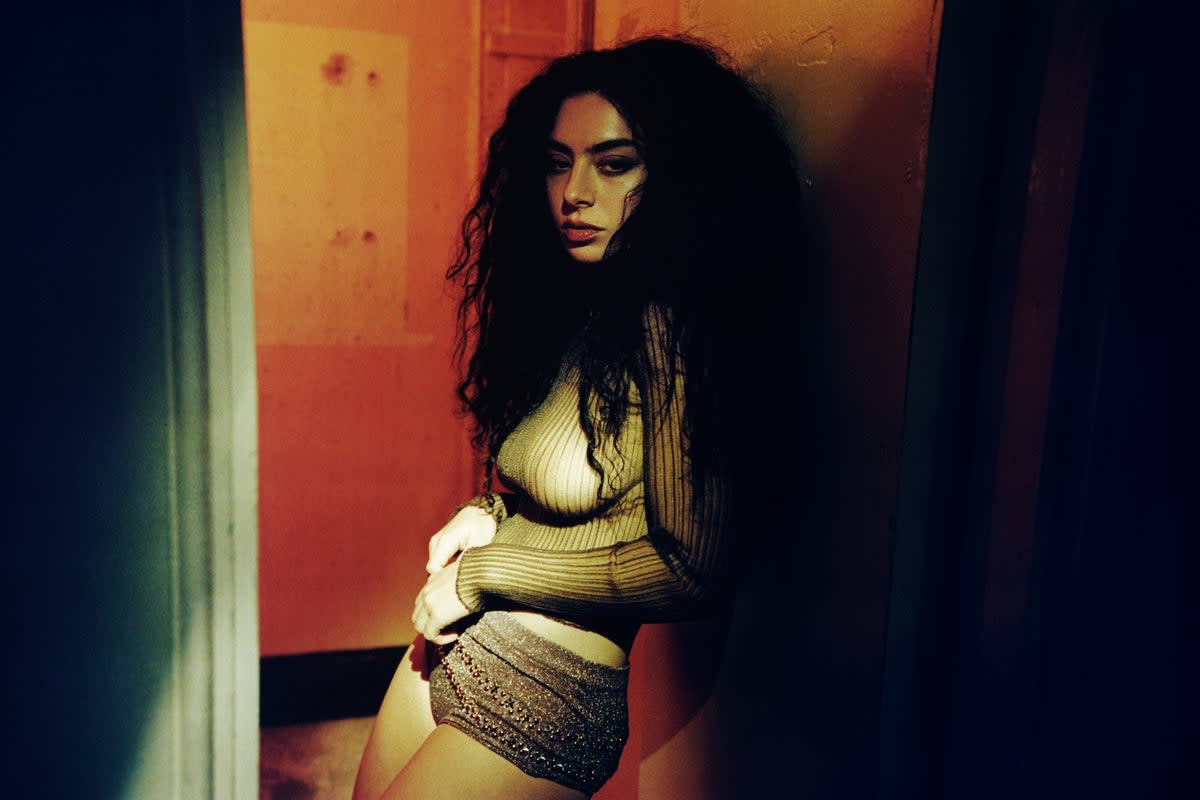Charli XCX, BRAT review: Dance-pop star slips a little vulnerability into her clever, anarchic beats

“I’m famous, but not quite,” says Charli XCX on her 10th album. The admission is as bold, blunt, challenging, and vulnerable as the album on which it appears. BRAT is a hedonistic, ultraviolet collection of songs whose thumping – slightly disorienting – club beats more than succeed in their aim of “capturing a feeling of chaos”. Over thudding bass lines, you can imagine glasses of vodka and coke shuddering on the bar – imagine Jurassic Park, but the T rex is a subwoofer.
Across the album, the artist born Charlotte Aitchison blurts out the contradictions of relishing her cool status as a “cult classic” while still fretting over her weight and whether she “deserves commercial success” – all the while, sharply aware that it means little in the grand scheme of things.
At 31, the savvy Essex girl has been making edgy electro-pop music since she was 14. She’s released a string of banging Top 10 singles under her own name (including 2014’s “Boom Clap” and 2016’s “After the Afterparty”) as well as knocking out hits for the likes of Iggy Azalea, Icona Pop, Shawn Mendes, and Camilla Cabello – candidly confessing that “if I don’t keep a track, it’s because I don’t like it”. She’s made a chart-topping album (2022’s glitchy pop-punk outing Crash), toured with Taylor Swift, and appeared on the soundtrack to Margot Robbie’s Barbie – a film whose neon plasticity and multilayered irony and vulnerability is a perfect match for her own autotuned aesthetic.
That said, I’m not sure a huge percentage of the population would recognise Charli on the street – which especially says something given her proclivity for starring as a sexy cyborg on magazine covers. So, as Charli herself concedes against the reflective raindrop synths of “I might say something stupid”, she’s still got “one foot in a normal life” and, at times, is left wondering where she fits in.
The inner conflicts aren’t solely over her career. Over the vibrating, plastic drainpipe beats of “Sympathy Like a Knife”, she seeks company while yearning for her own space – her voices vocodered into splintered dissociation. On “Girl, so confusing”, she’s after female solidarity with a woman (presumably a fellow successful pop star) who makes her feel insecure. “You’re all about writing poems, I’m all about throwing parties,” she sings, in a line that’s sure to spark rumours that she’s referring to pop’s reigning behemoth Taylor Swift. “One day we might make some music/ The internet would go crazy/ But you might still want to see me falling over and failing.”
“So, I” finds the musician celebrating her friendship with her former producer, SOPHIE, who died in 2021 after falling from a rooftop while trying to get a better view of the moon. It’s an honest ballad on which Charli pays homage to her late friend’s sugar-spun sound and quotes her song, “It’s OK to cry”. Midway through, the tracks pivots poignantly to reflect on Charli’s regrets over not accepting SOPHIE’s invitations to spend more time together.
When it comes to love, Charli finds herself hiding a secret lover on the 4/4 stomp of “Talk Talk” and later croons about an idyllic holiday of “white sheets and lace curtains” over the breezy flutes of “Everything is Romantic”. It’s not the only jazzy moment on the album, which does occasionally allow keyboards to cut loose as though they’re snatching your hand and pulling you from the dance floor down giddy corridors. Little snatches of quotes from old club hits – “Bring the beat back!” – seem to echo off the walls.
Charli’s relationship with the listener shifts through the registers. Sometimes she’s on the podium, striking poses and demanding admiration. Other times, she’s your new bestie, whispering secrets to you on the dance floor and passing loo roll beneath cubicle doors in the bathroom. Later, she’s the girl you find crying outside with the “snagged tights on a lawn chair”. She is shifting and impossible to pin down: you never quite know Charli despite her honesty. The push and pull of her intimacy and her on-off star status are all part of the strobe effect.
On the album’s penultimate track, “I think about it all the time”, Charli describes visiting a couple of new parents. Here, her ambition takes a different tack. She wants to know what they know and considers coming off her birth control. The mood recalls that of a dawn taxi ride home, caught between fatigue and hope. Only, it turns out, the destination isn’t home after all – but another party as the album pulls into “365”. The track yanks listeners into one last defiant bop during which Charli’s up for “bumping that” for as long as you can keep up. Because if there’s one place where she fits in, it’s in the grind of these clever, anarchic beats.


